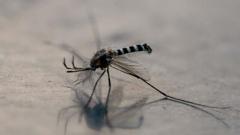**WHO's newly formed treaty is a landmark step towards international cooperation in health security and equitable resource distribution.**
**WHO Unveils Groundbreaking Legally Binding Pandemic Treaty**

**WHO Unveils Groundbreaking Legally Binding Pandemic Treaty**
**The historic agreement aims to enhance global readiness for future pandemics.**
In a momentous development, members of the World Health Organization (WHO) have agreed to the text of a legally binding treaty intended to improve responses to future pandemics. The agreement seeks to address the chaotic resource competition and disorganization witnessed during the COVID-19 crisis. Among its key provisions are enhanced mechanisms for the swift sharing of data regarding new diseases, facilitating prompt collaboration between scientists and pharmaceutical companies in creating treatments and vaccines.
For the first time, the WHO will have comprehensive visibility over global supply chains for essential personal protective equipment (PPE) such as masks and medical gowns. WHO Director-General Dr. Tedros Adhanom Ghebreyesus hailed the treaty as "a significant milestone in our shared journey towards a safer world," emphasizing the importance of multilateralism in combating shared global threats.
This pivotal treaty, reached after three years of negotiations, represents only the second international binding agreement in the WHO’s 75-year history, following a tobacco control accord in 2003. Formal adoption of the treaty is expected at the upcoming World Health Assembly next month, although discussions have taken place without the involvement of US negotiators due to the country’s planned withdrawal from the organization in 2026.
The treaty mandates that nations ensure global access to pandemic-related medications in any future health crisis. Participating pharmaceutical manufacturers are required to allocate 10% of their production of vaccines, therapeutics, and diagnostics to the WHO, with another 10% provided at affordable prices. Additionally, the agreement includes provisions for the transfer of health technologies to developing nations on mutually agreed terms, which aims to bolster local production capabilities during pandemics.
Despite this, the clause has sparked controversy, as developing countries hold grievances over wealthier nations’ vaccine hoarding during the COVID-19 pandemic, while pharmaceutical companies voice concerns that compulsory transfers might stifle innovation. Central to the treaty is the proposed Pathogen Access and Benefit-Sharing System (PABS), designed to streamline data exchange among pharmaceutical firms, expediting the development of new medical solutions in the face of future outbreaks.






















